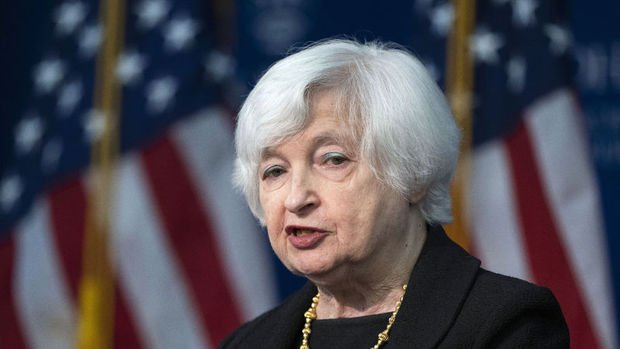Yellen: 'Tough choices' will have to be made
US Treasury Secretary Janet Yellen stated that if Congress does not raise the debt limit, there will be “tough choices” to be made regarding payments. US Treasury Secretary Janet Yellen stated that the likelihood of the government generating sufficient tax revenues by June 15 is very low, and that the debt limit should be increased by June 1. With less than 2 weeks left before the US federal government reaches its debt limit of $31.4 trillion and faces a cash crunch, Yellen reiterated her warnings about the debt limit in an interview with NBC. Yellen emphasized that the deadline for increasing the debt limit remains June 1. “Tough choices” will have to be made regarding payments Recalling that in her last letter to Congress, she stated that the country would probably not be able to make its payments at the beginning of June, probably on June 1, Yellen stated that she would continue to provide Congress with information on this issue, but that she would not change her current assessment. Yellen stated that if Congress does not increase the debt limit, there will be “tough choices” to be made regarding payments. When asked whether the Treasury’s assets will be enough until June 15, Yellen said, “There’s always uncertainty around tax collections and spending, and so it’s hard to be absolutely certain about that, but my assessment is that the likelihood of hitting June 15 while we’re paying all our bills is very low.” Biden calls Republicans’ debt limit proposals “unacceptable” On the other hand, US President Joe Biden said in a statement on his return from the G7 Leaders’ Summit that most of the recent proposals made by Republicans in the debt limit negotiations were “unacceptable.” Stating that he would be willing to cut spending along with tax adjustments in order to reach an agreement on the debt limit, Biden announced that he would speak with US House Speaker Kevin McCarthy on his way back. In an interview with Fox News, House Speaker Kevin McCarthy accused Biden of wanting to default rather than reach an agreement. Republican Patrick McHenry, who participated in the debt limit negotiations, also said he was “pessimistic” about the status of the negotiations. Debt limit negotiations deadlocked again The departure of debt limit negotiators appointed by US House Speaker McCarthy from talks with White House officials that began on Friday had cast doubt on reaching an agreement on the debt limit. Republican Representative Garret Graves said that White House officials were “completely unreasonable” and that they were stalling because the negotiations were not productive. The renewed deadlock in debt limit negotiations had increased concerns in the markets. There are concerns that exceeding the debt limit would seriously harm the US economy The US federal government has reached a debt limit of $31.4 trillion, which could lead to a default. The debt limit, or debt ceiling, means “an upper limit on the amount of money the U.S. government can borrow to repay its debts.” There are concerns that exceeding the debt limit would seriously harm the US economy. It is stated that even a short-term exceedance of this limit could lead to a decrease in real gross domestic product (GDP), the loss of approximately 2 million jobs, an increase in the unemployment rate from the current level of 3.5 percent to approximately 5 percent and an increase in borrowing costs.


